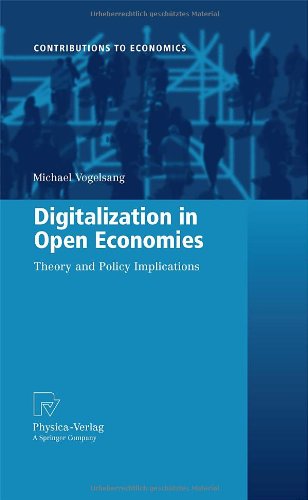

Most ebook files are in PDF format, so you can easily read them using various software such as Foxit Reader or directly on the Google Chrome browser.
Some ebook files are released by publishers in other formats such as .awz, .mobi, .epub, .fb2, etc. You may need to install specific software to read these formats on mobile/PC, such as Calibre.
Please read the tutorial at this link: https://ebookbell.com/faq
We offer FREE conversion to the popular formats you request; however, this may take some time. Therefore, right after payment, please email us, and we will try to provide the service as quickly as possible.
For some exceptional file formats or broken links (if any), please refrain from opening any disputes. Instead, email us first, and we will try to assist within a maximum of 6 hours.
EbookBell Team

4.0
6 reviewsDigital strings are not visible, but affect all economic segments. This book studies the phenomenon of digitalization with the instruments of economics in order to explore the interdependencies between digitalization, economic policy, and macroeconomic variables of open economies. Digitalization is separated into the three components networks, IT services, and digital goods which are then incorporated into macroeconomic models of trade theory in open economies. This approach allows to formally describe the cross-effects between digitalization and macroeconomic variables of a country. Specifically, it is used to analyze interdependencies between macroeconomic variables and networks, IT services, and digital goods, and to determine the challenges of digitalization for economic policy and regulation.